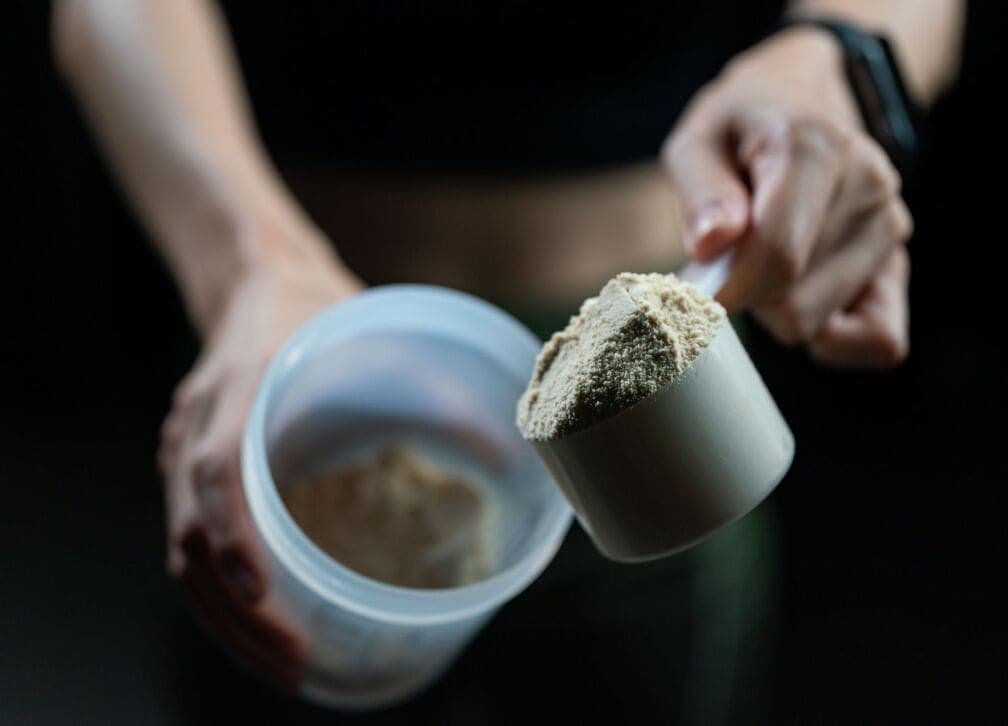Creatine and Sleep: Can This Popular Supplement Improve Your Sleep Quality?

June 1, 2024
While creatine is widely recognized for its benefits in enhancing athletic performance, muscle mass, and recovery, new research is now exploring an unexpected potential advantage—better sleep quality. A recent study conducted by scientists at the University of California suggests that creatine supplementation may play a role in reducing sleep disturbances and improving overall sleep efficiency.
The study, which monitored over 300 participants, found that those who took creatine regularly for eight weeks reported improved sleep quality, fewer disruptions, and better cognitive performance upon waking. This new discovery adds to the growing list of creatine's potential benefits, making it not just a gym supplement but also a tool for improving general well-being.
How Creatine Might Affect Sleep
Creatine is known for its role in increasing ATP production in muscles, but ATP is also a crucial energy source for the brain. This energy boost may extend to cognitive functions, including how the brain processes rest and recovery during sleep. In particular, creatine may help the brain maintain optimal ATP levels even during sleep deprivation, allowing for better mental performance when you're sleep-deprived.
Dr. Samantha Levine, the lead researcher on the study, explains, "Our findings indicate that creatine may buffer the brain from the negative effects of sleep deprivation by maintaining energy stores. While it doesn’t directly put you to sleep like melatonin or other sleep aids, creatine seems to enhance the quality of sleep and the brain's recovery during sleep."
Participants who supplemented with creatine and reported better sleep also showed improved cognitive tasks performance after sleep disruptions compared to those who didn’t take creatine. This indicates that creatine could be beneficial not just for athletes but for people dealing with occasional sleep disturbances, like those with demanding work schedules or students during exam periods.
Creatine and REM Sleep
One of the more intriguing aspects of the study was its look into how creatine might impact REM sleep—the sleep phase responsible for dreaming and cognitive processing. REM sleep is vital for mental recovery and emotional regulation. The study revealed that creatine users experienced longer durations of REM sleep and fewer interruptions during this critical phase, suggesting that creatine may support deeper and more restorative sleep cycles.
While further studies are needed to confirm these findings, initial results suggest that creatine could be an ally in achieving a more restful night’s sleep, particularly for individuals who engage in intense physical activity or have irregular sleep patterns due to work or other commitments.
Should You Take Creatine for Better Sleep?
Our Top Recommendations

Optimum Nutrition Micronized Creatine Monohydrate Powder
Micronized for easy mixing, supports muscle growth and endurance.
See on Amazon$0.35 per 5g serving

Nutricost Creatine Monohydrate Micronized Powder
Third-party tested, non-GMO, 5g of pure creatine per serving.
See on Amazon$0.2 per 5g serving

NSF Certified, supports muscle power and recovery.
See on Amazon$0.46 per 5g serving

ProMix Creatine Monohydrate Powder
Micronized, additive-free, ideal for performance and recovery.
See on Amazon$0.36 per 5g serving

NOW Foods Sports Nutrition Unflavored
100% pure creatine, GMP certified, boosts strength and endurance.
See on Amazon$0.2 per 5g serving
Although creatine is not typically associated with sleep improvement, these findings could open up new opportunities for people who are looking to enhance both their athletic performance and sleep quality. Here’s what you should know:
- Consistency is key: Creatine works best when taken consistently over time. While you may not notice immediate sleep improvements, ongoing use may lead to better results after a few weeks.
- Timing matters: Taking creatine earlier in the day might be more beneficial if you’re concerned about sleep. Some people report feeling more alert after taking creatine, so avoid taking it late at night if you are sensitive to its energizing effects.
- Pair with a healthy sleep routine: As with any sleep aid or supplement, creatine works best when combined with good sleep hygiene. Make sure to maintain regular sleep and wake times, avoid screens before bed, and create a relaxing bedtime routine.
- Dosage: Stick to the recommended dosage of 3-5 grams per day. Higher doses aren’t necessary for the potential sleep benefits and may lead to side effects like bloating or digestive discomfort.
The Future of Creatine and Sleep Research
The emerging relationship between creatine and sleep is an exciting area of study that could broaden the uses of this already-popular supplement. Future research will likely explore creatine's effects on sleep in greater depth, including its long-term impact on sleep disorders such as insomnia or sleep apnea. Moreover, researchers are also keen to see how creatine interacts with other natural sleep aids like magnesium, melatonin, and ashwagandha.
Many in the health and wellness industry are optimistic about these findings. Sarah Green, a sleep specialist, said, "If creatine can provide the added benefit of improving sleep quality while still offering all the advantages for athletic performance, it could become an even more popular supplement among both athletes and the general public."
Conclusion
Though primarily known for boosting athletic performance and muscle growth, creatine may soon gain recognition as a supplement that can also support improved sleep quality. While it’s not a sleep aid in the traditional sense, its ability to enhance brain energy and promote deeper, more restorative sleep could make it an invaluable tool for anyone looking to optimize both their workouts and their rest.
As the science around creatine continues to evolve, it’s becoming clear that this versatile supplement has much more to offer than previously thought. For those looking to enhance both their athletic performance and their overall well-being, creatine could be a valuable addition to their daily regimen.






